
AlphaLISA Human BMP-7 Detection Kit, 5,000 Assay Points
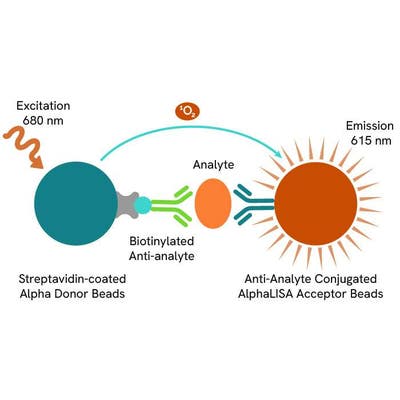
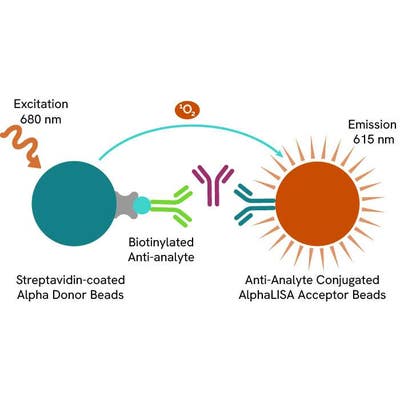
 View All
View All
AlphaLISA Human BMP-7 Detection Kit, 5,000 Assay Points
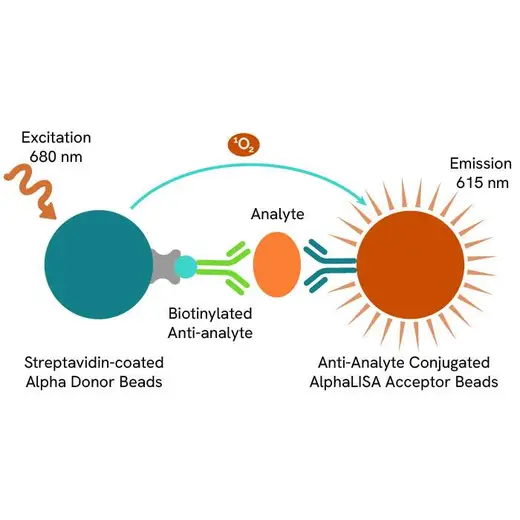
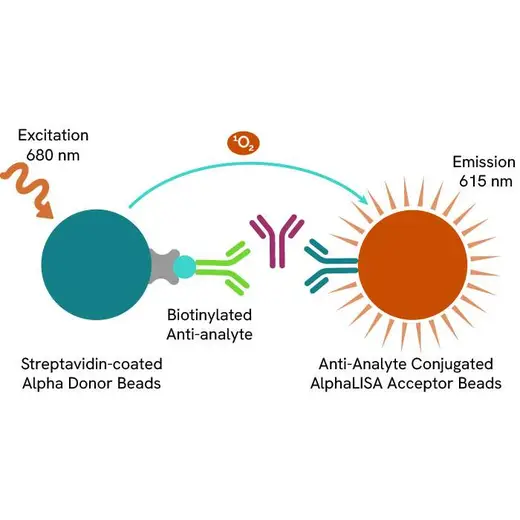



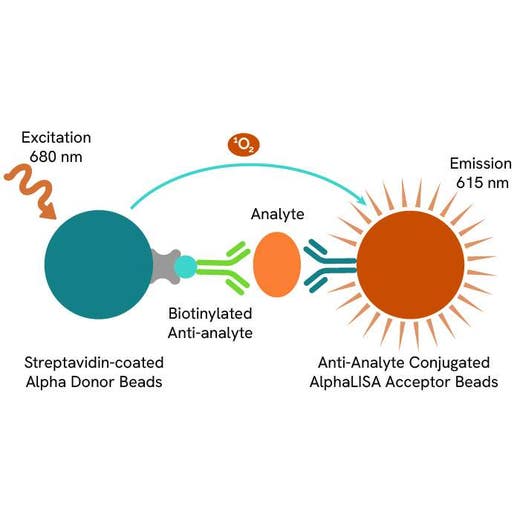
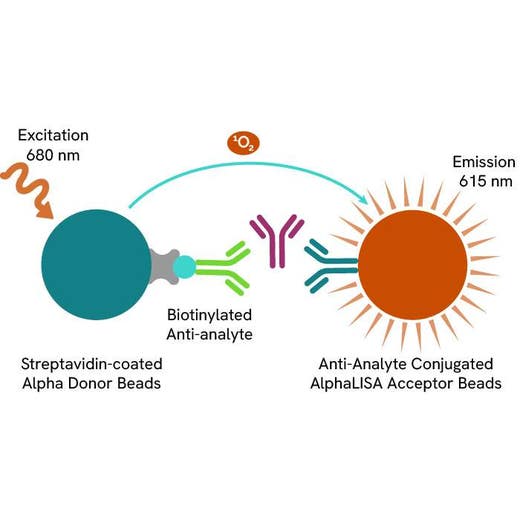



The AlphaLISA™ Human BMP-7 Detection Kit is designed for detection and quantitation of human BMP-7 in cell culture media or serum using a homogeneous (no-wash steps, no separation steps) assay.
| Feature | Specification |
|---|---|
| Application | Protein Quantification |
| Dynamic Range | 4 - 300,000 pg/mL |
| Limit of Detection | 4.3 pg/mL |
| Limit of Quantification | 14.8 pg/mL |
| Sample Volume | 5 µL |
The AlphaLISA™ Human BMP-7 Detection Kit is designed for detection and quantitation of human BMP-7 in cell culture media or serum using a homogeneous (no-wash steps, no separation steps) assay.





AlphaLISA Human BMP-7 Detection Kit, 5,000 Assay Points





AlphaLISA Human BMP-7 Detection Kit, 5,000 Assay Points





Product information
Overview
Formats:
- Our 100 assay point kit allows you to run 100 wells in 96-well format, using a 100 µL reaction volume (10 µL of sample).
- Our 500 assay point kit allows you to run 500 wells in 96-well or 384-well format, using a 50 µL reaction volume (5 µL of sample).
- Our 5,000 assay point kit allows you to run 5,000 wells in 96-well or 384-well format, using a 50 µL reaction volume (5 µL of sample).
Features:
- No-wash steps, no separation steps
- ELISA alternative technology
- Sensitive detection
- Broad sample compatibility
- Small sample volume
- Results in less than 3 hours
- Half the time of an ELISA assay
Bone morphogenetic protein 7 (BMP-7), also known as osteogenic protein 1 (OP-1), belongs to the TGF-β superfamily and is expressed in the brain, kidneys and bladder. BMP-7 is involved in bone homeostasis and plays a key role in the transformation of mesenchymal cells into bone and cartilage. The expression of BMP-7 causes ventral phenotypes while its complete inhibition creates a dorsal phenotype. Human recombinant BMP-7 protein can be used to aid in the fusion of vertebral bodies to prevent neurologic trauma. It also functions in the treatment of tibial non-union fracture, frequently in cases where a bone graft has failed. It is also found that BMP-7 has the potential for treatment of chronic kidney disease.
AlphaLISA technology allows the detection of molecules of interest in a no-wash, highly sensitive, quantitative assay. In an AlphaLISA assay, a biotinylated anti-analyte antibody binds to the Streptavidin-coated Donor beads while another anti-analyte antibody is conjugated to AlphaLISA Acceptor beads. In the presence of the analyte, the beads come into close proximity. The excitation of the Donor beads causes the release of singlet oxygen molecules that triggers a cascade of energy transfer in the Acceptor beads, resulting in a sharp peak of light emission at 615 nm.
Specifications
| Application |
Protein Quantification
|
|---|---|
| Automation Compatible |
Yes
|
| Brand |
AlphaLISA
|
| Detection Modality |
Alpha
|
| Dynamic Range |
4 - 300,000 pg/mL
|
| Limit of Detection |
4.3 pg/mL
|
| Limit of Quantification |
14.8 pg/mL
|
| Product Group |
Kit
|
| Sample Volume |
5 µL
|
| Shipping Conditions |
Shipped in Blue Ice
|
| Target |
BMP-7
|
| Target Class |
Biomarkers
|
| Target Species |
Human
|
| Technology |
Alpha
|
| Therapeutic Area |
Oncology
|
| Unit Size |
5,000 Assay Points
|
Video gallery

AlphaLISA Human BMP-7 Detection Kit, 5,000 Assay Points

AlphaLISA Human BMP-7 Detection Kit, 5,000 Assay Points

Loading...


How can we help you?
We are here to answer your questions.






























